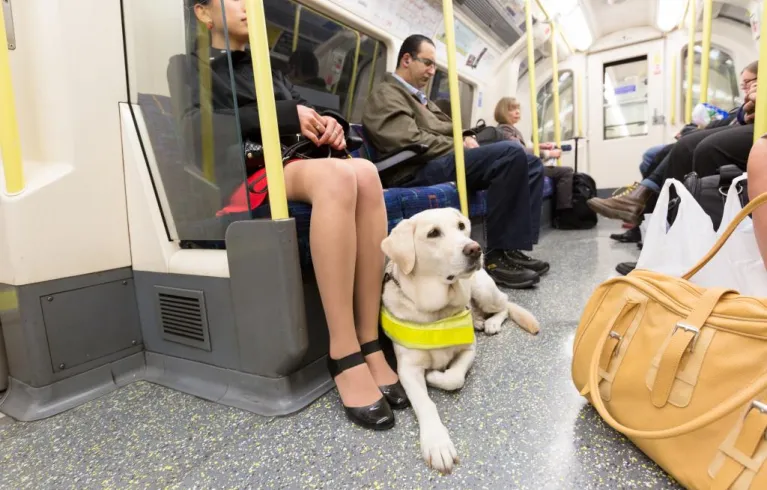
Key information
Publication type: General
Publication date:
London is a world leader in providing an accessible transport network and we celebrate that. The progress made in this area was reflected in praise we heard for Transport for London from a number of Londoners with a sensory impairment, for instance for the ‘turn up and go’ assistance available at Tube and London Overground stations, and for the introduction of the iBus system on London’s buses.
However, our investigation has highlighted a wide range of issues which put this leading status at risk. Despite evidence of progress in improving accessibility, some recent developments may seem like backward steps from the perspective of Londoners with a sensory impairment, not least changes in Tube station staffing, bus design and pavement layouts.
Specific concerns raised by Londoners with a sensory impairment and representative organisations included:
- Difficulties obtaining passenger information, particularly real-time service information, which is accessible for people with a sensory impairment.
- Barriers to travelling independently with confidence, such as difficulties moving around stations or using private hire services with assistance dogs.
- A number of problems using the bus network, including those arising from the variety of bus designs in London and the provision of hearing loops.
- Variability in levels of awareness, skills and understanding among staff on the transport network.
- Difficulties navigating the street environment and ‘shared space’ areas, with emerging concerns about the introduction of bus stop cycle bypasses, also known as ‘floating bus stops’.
Read our report ‘Leading the Way: Travelling with a sensory impairment in London’ below.
Related documents
Leading the Way Report
Leading the Way report - LARGE PRINT
All submissions
All individual submissions - redacted